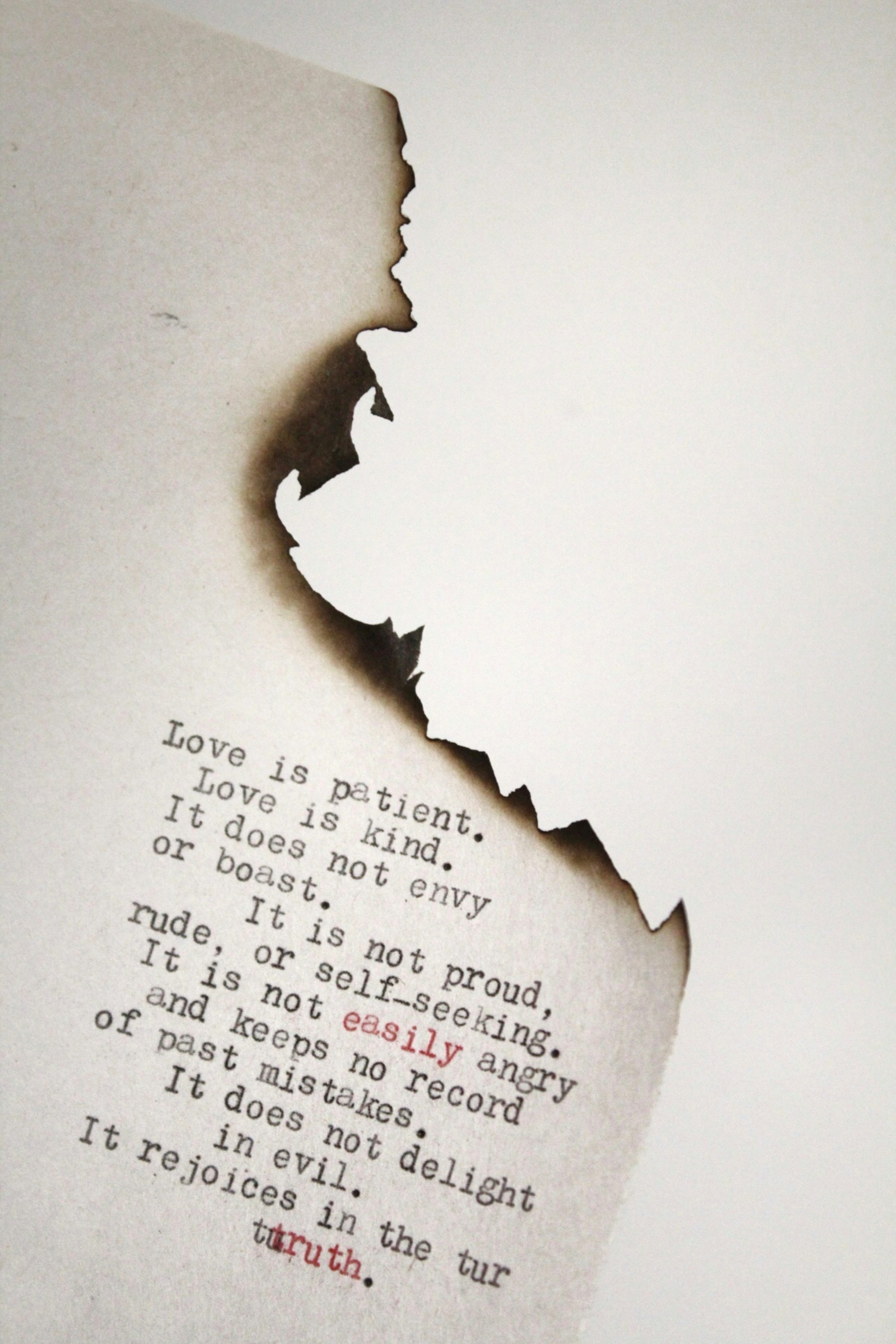
“Love yourself. Enough to take the actions required for your happiness. Enough to cut yourself loose from the drama-filled past. Enough to set a high standard for relationships. Enough to feed your mind and body in a healthy manner. Enough to forgive yourself. Enough to move on.” – Steve Maraboli

It is very often when people want a new relationship, they either look for someone to complete them or they imagine sharing their life with someone just like them. So they try to present themselves in the best possible light for their imagined future partner—either as one perfect half of a whole or as an ideal version of what they believe their future partner will want.
In my experience, finding your soul mate requires a different, far more soul-enriching approach. Here are six steps that worked for me:
1. Stop looking for your soul mate and find the missing parts of you.

This may sound counterintuitive, but it’s exactly how I met my partner. I stopped looking for “the one” after a two-year relationship ended, which I had believed was the one. I decided to turn my attention inward—to get to know and accept myself, to heal past wounds, and to explore and develop new parts of myself.
Previously, I needed to be with someone in order to feel content, to have someone love me in order to feel loved. Breaking up with past boyfriends was so painful because it felt as if I was breaking up, as if I was being torn from a part of myself.
What I discovered was that I had to learn to be whole. And when I started to work on that, my life changed.
2. Live your life as you want to live it.

When I started to discover more about myself and to follow my own path, I started to live a life that was meaningful to me. I was no longer following someone else’s rules and ideas about what I should do.
This can disappoint some people close to you, such as your family. But if you want to find fulfillment in your life, you have to fulfill yourself, not someone else!
And doing what is right for you means you will be in places, jobs, and near people that are aligned with your life path, and with you. So you will have a much better chance of meeting your soul mate, because your soul mate will also be connected to your life path.
3. Stop trying to appeal to an imagined, potential partner.

A side effect of leading the life you choose is that you automatically become more attractive. You become more real, authentic, substantial, valuable, passionate, happy, and present. This makes you more beautiful in a natural and effortless way, and it will also make you attractive to your soul mate.
Whereas when you try to make yourself attractive in order to find someone, you alter the way you behave and present yourself so that if your soul mate were to show up, he or she might not even recognize you.
So just be yourself, whether that means you dress in corporate attire or resort wear, or casual clothing or more formal, or if your preference changes at different times.
You don’t need to be a particular weight or have large biceps or wear uncomfortable shoes if you don’t like them. Go to the gym only if you love it, do yoga if you love it, walk or surf or cycle if you enjoy those activities.
A partner who you will be with over the long term will not make a decision about your worth based on a superficial aspect of your appearance. So tap into what feels right for you, do the activities you enjoy, wear the clothes that suit you and in which you feel comfortable.
You will be far more attractive to your soul mate if you look like yourself when you meet them.
4. If you are attracted to particular qualities in someone else, find or develop those qualities in yourself.

Most of us express only a small part of who we are. We limit ourselves to the personality—or self—we have become in response to our childhood environment. This is an unavoidable stage in our developmental process because we have to form a self—or ego—that enables us to survive and hopefully thrive in our family and social setting.
And the way we do that is by developing characteristics that meet our survival needs and pushing away any characteristics that aren’t valued or needed.
So we all have hidden or disowned parts of ourselves that at some point we need to unearth.
When we haven’t yet unearthed and embraced our disowned parts, we are drawn into relationships with others who express those parts. It is like we are unconsciously trying to complete ourselves through our relationships.
These relationships usually involve intense attraction at first and are characterized by feelings of completeness. But inevitably, they become stifled by strong relationship patterns that form where people get stuck relating to one another from one main part of themselves that bonds with its opposite in the other person. These are called “bonding patterns.”
So, for example, a very responsible man might become a “responsible father” in relation to his partner’s inner “pleasing daughter,” and a nurturing woman might become a “nurturing mother” to her partner’s inner “needy son.”
If the woman doesn’t become conscious of her own responsibility, she will rely on her partner to be responsible. And if the man doesn’t connect with his nurturing side, he will want to be nurtured by her. But then when stresses and vulnerabilities arise in the relationship, these bonding patterns turn negative, and the partners turn on each other.
I am so grateful to have learned about bonding patterns because the awareness of them not only helps enormously in my relationship, but they also act as a guide for which parts of myself I have lost connection to.
Because bonding patterns are the natural way that we give and receive love, they are unavoidable. And no matter how conscious we become, there is always something that’s unconscious! But bonding patterns can be navigated successfully.
When you become aware that you are attracted to other people because of what you have disowned in yourself, and then work on owning those qualities in yourself, your relationships transform.
If you are in a relationship already and you begin this process, then as you and your partner reclaim your disowned selves, you start to become more fully yourselves with each other and your relationship will become richer.
5. Engage with life; accept the gifts that are offered to you.

Promised to yourself that you would accept the gifts life offered you, such as saying yes to invitations that seemed to come from nowhere.
When I decided to came to accompanying my friend to a place which I usually refused to, there he was: my future husband, with whom I have a relation with for almost four years of a wonderful life together.
Was I looking for someone when I went to that place?
No. And it was a surprise to meet him there. If I had been intentionally looking for a partner, I probably would not have even spoken to him that day.
When you look at each person you encounter as if you are screening them for a job with a life-long contract, it changes the organic flow of events and natural connection that forms with the people you encounter. It is also off-putting to be evaluated as a “catch” and it is likely to make people run from you!
The simplest way to stop assessing others as potential life partners is to just stop looking for a partner and connect with the people you meet with genuine interest. Then enjoy the type of relationship that naturally develops—or doesn’t—whether that’s a friendship, a business connection, or a bond based on a mutual interest.
6. When you meet someone, don’t hurry things; allow the relationship to unfold.

When you meet someone you have a good connection with, allow that connection to develop and grow. If the person is a soul mate, he or she will also be into you, so if you both pay genuine attention to each other then something will develop.
There is no need to play games or to try particular seduction techniques or to achieve milestones by a particular time. A successful long-term relationship is not a game.
Do you really want to be in a relationship with someone you had to manipulate into it? Do you want your partner to be enchanted by an image you have created so that you have to hide yourself in some way? Or do you want your partner to love you wholeheartedly? What kind of relationship do you want to bring children into if you end up having them?
Each relationship is unique, just as each person is unique, so how your relationship unfolds will be unique too. You can’t plan for it to go a particular way. You have to engage with the process of it and with each other, and then make decisions as you go. There is no one line you can say, no one action you can take, that will lead to a particular result.
All you can do is live your life more fully, learn to accept and love yourself more fully, and you will love and be loved more fully




